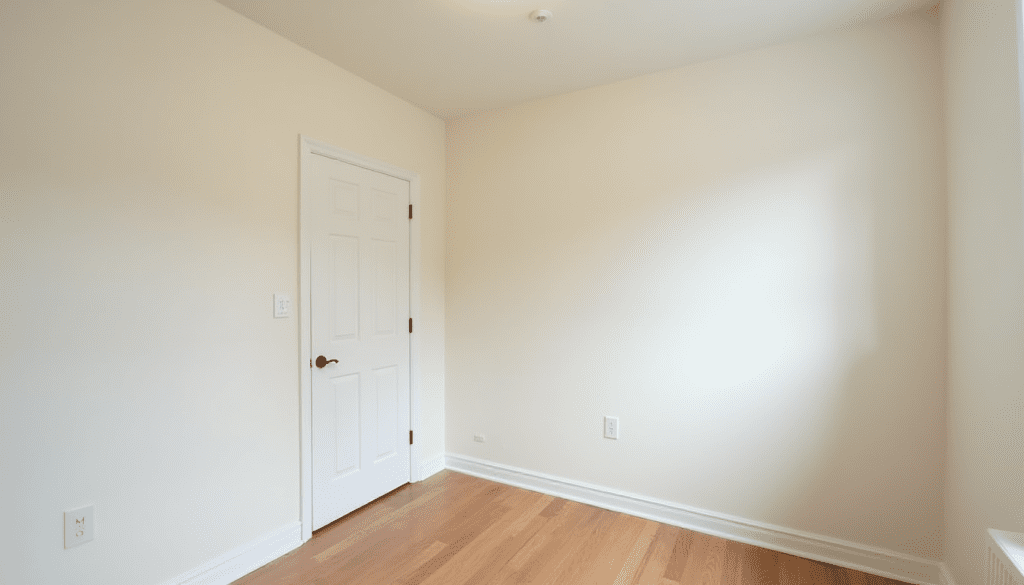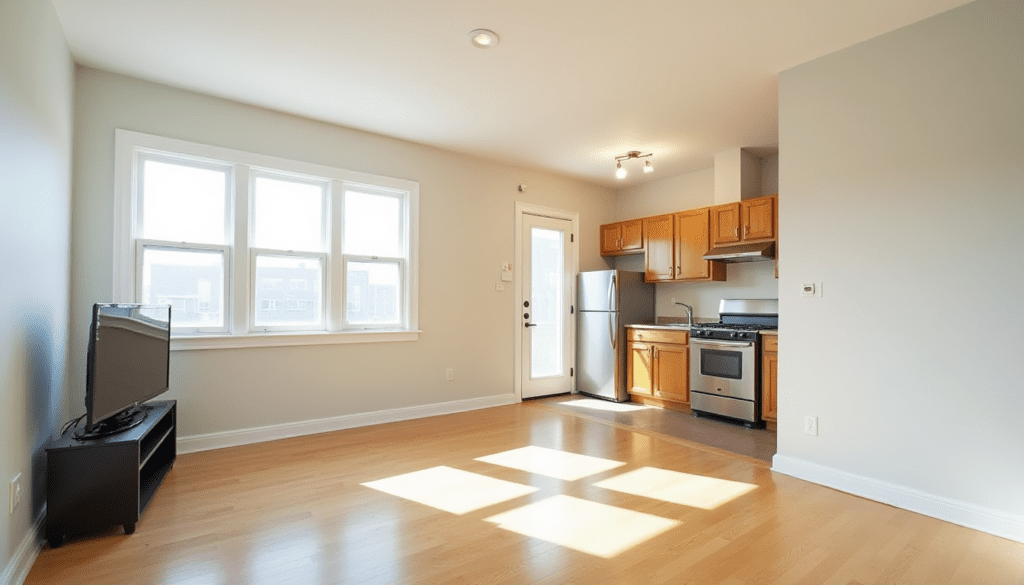For many landlords in Bloomfield, NJ, late rent payments are one of the most stressful and recurring issues in property management. Having a tenant who consistently pays rent late does not just disrupt cash flow—it also creates uncertainty in planning expenses like mortgage payments, property taxes, and maintenance costs. New Jersey law offers protections for both landlords and tenants, but to effectively handle habitual late rent, landlords in Bloomfield need a combination of strong lease agreements, proper communication, and legal awareness. This guide explores strategies that can help protect your rental income and maintain smoother relationships with tenants while staying compliant with state regulations.
Understanding New Jersey’s Laws on Late Rent & Habitual Late Payments
One of the first steps in managing tenants who consistently pay late is understanding New Jersey’s legal framework. In Bloomfield and across the state, landlords are allowed to charge late fees only if they are clearly stated in the lease agreement. According to New Jersey Real Estate Attorney Blog, eviction for “habitual late payment of rent” requires more than just a single late check. The landlord must show a repeated pattern, and typically two pre-suit notices at one-month intervals are required before a Notice to Quit can be issued. This process can stretch across several months, meaning landlords should not rely solely on eviction as their first response.
Additionally, New Jersey law provides grace periods for certain tenants, especially senior citizens receiving Social Security or disability benefits. Bloomfield landlords must ensure their lease agreements and enforcement policies respect these laws, as failing to do so could jeopardize eviction proceedings. Familiarizing yourself with these requirements allows you to act confidently while protecting your rights as a property owner.

Why Bloomfield Landlords Face Chronic Late-Paying Tenants
Bloomfield’s rental market is vibrant, with a mix of long-term residents and transient renters. This variety sometimes creates financial instability among tenants. Some tenants face unexpected job losses, while others may simply lack the discipline to pay on time. As Stessa notes, tenants who repeatedly pay late often underestimate the seriousness of their actions, assuming landlords will tolerate delays indefinitely. Unfortunately, this behavior can evolve into a cycle of late payments that places significant stress on the landlord.
For landlords managing properties in Bloomfield, where demand for rentals is steady, habitual late rent may not be due to financial hardship alone. Sometimes it reflects poor tenant screening or lenient lease enforcement. This makes it essential to address the issue early—before it escalates into a larger problem requiring legal intervention.
Reviewing and Updating Your Lease Agreement: Timing, Grace Periods & Penalties
Your lease agreement is your strongest line of defense against tenants who consistently pay late. A well-written lease should clearly define:
- The rent due date each month
- Whether a grace period applies and its duration
- The amount of any late fees
- The consequences of repeated late payments
According to Reno’s Property Management, landlords who outline these terms upfront reduce ambiguity and establish enforceable standards. In Bloomfield, it’s particularly important to align your lease with New Jersey landlord-tenant laws to avoid legal challenges. If your current lease lacks detail on late payments, consider updating it during renewal periods. This ensures that you remain within legal boundaries while protecting your financial interests.
For example, instead of a vague “rent due monthly” clause, specify “Rent is due on the 1st of each month. A late fee of $50 will be assessed if rent is not received by the 5th day of the month.” Clarity empowers landlords to take action quickly when tenants fall behind.

Setting Up Clear Payment Policies in Bloomfield Rental Agreements
Beyond lease clauses, consistent communication of your rent payment policy is essential. When onboarding tenants, walk them through the agreement and highlight sections on rent, grace periods, and penalties. Reiterate that late payments not only create inconvenience but may also affect their rental history. As NJ Realty Solutions explains, landlords should document every policy discussion and follow up in writing. This helps prevent disputes later and strengthens your position should legal enforcement become necessary.
Many landlords in Bloomfield also implement tiered policies—for example, warning letters for the first late payment, higher fees for repeat offenses, and eventual escalation to notices. Clear, progressive steps send a message that while flexibility exists for genuine emergencies, habitual lateness will not be tolerated indefinitely.
Sending Timely Rent Reminders & Automating Payment Requests
In today’s digital age, manual rent collection is both inefficient and risky. Automated reminders reduce the chances of “I forgot” excuses and make tenants more accountable. Many property management platforms send reminders via email or text a few days before rent is due. This is particularly useful in Bloomfield, where tenants may be balancing work in nearby New York City and commuting schedules, often forgetting deadlines.
Sending timely reminders also helps you maintain a professional tone. Instead of chasing down payments manually, an automated system handles communication, leaving landlords free to focus on larger management responsibilities. Studies cited by Stessa confirm that tenants who receive digital reminders are more likely to pay on time. If automation isn’t an option, even a simple monthly calendar reminder or scheduled text message can have a meaningful impact.
Ultimately, timely communication strengthens your case should you need to demonstrate to a court that you took all reasonable measures to collect rent before pursuing eviction.
Making Online Rent Payment Convenient for Tenants
One of the most effective ways to reduce late rent in Bloomfield, NJ is to make the payment process simple and convenient. When tenants have multiple options—such as ACH transfers, credit card payments, or mobile app portals—they are far more likely to pay on time. Many landlords still rely on checks or in-person collections, which can lead to excuses about mailing delays or missed drop-offs. By switching to online rent collection, you eliminate those barriers and provide tenants with 24/7 access to payment options.
According to Stessa, digital platforms not only streamline payments but also provide automatic receipts and digital records, which are valuable for both landlords and tenants. This transparency can also help you resolve disputes more quickly if a tenant claims to have paid rent when records show otherwise.
For Bloomfield landlords, adopting online systems is particularly useful given the city’s high number of commuters. Many tenants do not want the added stress of physically delivering rent each month. Online payment portals are a modern solution that meets their lifestyle needs while protecting your bottom line.
Communicating with Tenants: Early Outreach & Payment Discussions
Even with strong policies and online tools, some tenants will still fall behind. The key to preventing a small issue from becoming a legal battle is early and respectful communication. A late payment should be acknowledged quickly—ideally the day after the due date. A polite reminder call or message can often resolve the issue before it snowballs into repeated lateness.
As NJ Realty Solutions points out, documenting these communications is essential. Always follow up verbal conversations with an email summarizing the discussion. This ensures you have a paper trail if you later need to prove to a court that you made good faith efforts to work with the tenant. In many cases, tenants respond positively when they realize their landlord is paying attention and documenting their behavior.
Bloomfield landlords should approach these conversations with empathy but also firmness. Financial challenges may arise unexpectedly, but chronic lateness cannot be overlooked. Addressing the issue early often prevents escalation and fosters healthier landlord-tenant relationships.
Structuring Fair Payment Plans for Financially Stressed Tenants
Sometimes tenants fall behind due to temporary hardships such as medical bills, job loss, or unexpected expenses. In these situations, offering a structured payment plan can help you recover rent while avoiding eviction. Instead of demanding full payment immediately, you may allow tenants to pay off arrears in smaller installments over the next few months.
According to Reno’s Property Management, landlords who offer structured plans often find tenants more cooperative and less defensive. Payment plans should always be documented in writing and signed by both parties. Include specific dates, amounts, and consequences for non-compliance to ensure clarity.
In Bloomfield, where housing demand remains strong, a payment plan may also preserve your tenant relationship while protecting steady occupancy. However, landlords must evaluate each case carefully. Extending flexibility to a tenant who repeatedly defaults may end up costing more than pursuing other remedies.
When to Serve Pay-or-Quit or Notice to Cease Late Payments
When communication and payment plans fail, landlords in Bloomfield may need to escalate matters legally. In New Jersey, a “Notice to Cease” is often the first step in addressing habitual late payments. This notice formally warns the tenant that their repeated lateness is a lease violation and that further violations will result in eviction proceedings. If the behavior continues, the landlord may serve a “Notice to Quit,” which formally terminates the tenancy.
The New Jersey Real Estate Attorney Blog explains that eviction based on habitual late payment is a process requiring multiple notices, usually spanning several months. This ensures that tenants are given fair warning while providing landlords with a legal foundation for eviction. Documentation is crucial at this stage; landlords must prove the tenant has a consistent history of late payments and that all required notices were properly served.
In Bloomfield, landlords should consult legal professionals before issuing these notices, as incorrect paperwork or timing errors can delay or invalidate an eviction case. Acting strategically with proper guidance helps protect your investment while ensuring compliance with New Jersey law.
Using “Cash for Keys” Agreements as an Alternative to Eviction
Eviction in New Jersey can be a lengthy and costly process, sometimes taking several months to resolve. As a result, some Bloomfield landlords opt for a “cash for keys” approach instead. This involves offering the tenant a financial incentive to vacate the property voluntarily. While it may seem counterintuitive to pay a tenant who owes you money, this method often saves time, stress, and legal fees.
As discussed in Stessa, cash-for-keys agreements work best when documented clearly. A written agreement should state the amount offered, the move-out date, and confirmation that the tenant will leave the unit in good condition. Once completed, the landlord regains possession of the property without enduring a protracted eviction case.
For Bloomfield landlords managing multiple units, this strategy can free up valuable time and restore reliable rental income more quickly. It also minimizes the emotional toll of prolonged disputes with tenants who have no intention of changing their payment behavior.
Initiating Eviction: Timeline & Legal Requirements in NJ
When all efforts to resolve late rent issues fail, eviction may be the only option left for landlords in Bloomfield, NJ. However, eviction in New Jersey is not immediate—it is a structured legal process designed to give tenants fair notice and landlords a lawful path to reclaim their property. According to the New Jersey Real Estate Attorney Blog, evictions for habitual late payment require multiple steps, including two pre-suit notices served at one-month intervals, followed by a Notice to Quit. This process can take up to five months before a landlord is able to file an eviction case in court.
During this period, landlords must carefully document each late payment, each notice served, and all communication with the tenant. Failing to maintain proper records could result in delays or dismissal of the case. Consulting with an experienced landlord-tenant attorney in Bloomfield ensures your filings comply with state requirements and increases your chances of a successful outcome.
While eviction is never an easy choice, sometimes it is the most practical way to protect your investment and prevent ongoing financial loss. For landlords managing multiple units, addressing one problem tenant swiftly helps preserve overall property profitability.
Using Rent Guarantee Insurance to Protect Your Cash Flow
For Bloomfield landlords who want a safety net against tenants who pay late or stop paying altogether, rent guarantee insurance is a powerful tool. This type of insurance covers lost rental income when tenants default, providing landlords with financial stability even in uncertain situations. As highlighted by Stessa, rent guarantee insurance is becoming more popular across the U.S. because it reduces risk and ensures consistent cash flow.
Policies vary, but many will reimburse landlords for unpaid rent after a tenant defaults, sometimes even covering legal expenses associated with eviction. For landlords in Bloomfield who rely on rental income to cover mortgage payments or property maintenance, this financial protection can be a game-changer. Before purchasing, review the policy terms carefully to ensure it aligns with New Jersey landlord-tenant laws and covers habitual late payment scenarios.
While insurance should never replace proactive management, it provides peace of mind, allowing landlords to operate with confidence even if one tenant becomes unreliable.
Reporting Late Payments and Its Impact on Tenant Behavior
Another way to discourage chronic late rent is by reporting tenant payment histories to credit bureaus. Many tenants do not realize that consistent lateness can affect their credit score and future housing applications. By reporting late payments, landlords in Bloomfield create accountability that encourages tenants to prioritize rent over other discretionary expenses.
As Reno’s Property Management suggests, transparency is key. Inform tenants upfront, ideally in the lease agreement, that late payments may be reported. This gives them an added incentive to stay current. Some property management software platforms include built-in credit reporting features, making this process easier for landlords managing multiple units.
For landlords in Bloomfield, reporting late payments is not about punishment—it is about encouraging responsible financial behavior. Over time, this practice can reduce the number of tenants who treat rent as an optional expense.
Preventing Recurrence: Tenant Screening and Lease Renewal Strategies
The best way to avoid dealing with chronic late payments in the future is through stronger tenant screening and careful lease renewal practices. In Bloomfield’s competitive rental market, it may be tempting to accept the first applicant who shows interest. However, thorough screening—including credit checks, rental history verification, and employer references—is essential to minimize risk.
According to Stessa, tenants with poor payment histories are far more likely to repeat the behavior. By screening carefully, landlords can identify red flags early and avoid months of frustration. For existing tenants with a history of late payments, consider tightening lease terms at renewal or, in some cases, declining to renew entirely. While this may result in a temporary vacancy, it often saves money and stress in the long run.
Lease renewals also offer an opportunity to update policies, increase late fees if allowed by law, or require tenants to enroll in online payment systems. Proactive adjustments during renewal cycles ensure that your rental agreements evolve with your management goals and protect you against repeat problems.
Maintaining Records & Documentation for Legal Protection
For Bloomfield landlords dealing with tenants who consistently pay rent late, keeping detailed records is one of the most powerful protections available. Every lease agreement, payment receipt, reminder notice, and communication should be documented and securely stored. If the situation escalates to eviction, the court will want to see proof that the tenant has a documented history of habitual late payment and that the landlord followed proper notice procedures.
As highlighted in the New Jersey Real Estate Attorney Blog, missing documentation can lead to delays or even dismissal of your case. Landlords should maintain both digital and physical records, including copies of emails, certified mail receipts, and payment logs. Modern property management software can also simplify this process by storing all communication and rent history in one place.
In addition to legal protection, documentation provides clarity for tenants. When tenants see that their late payments are tracked consistently, they may be more motivated to prioritize rent in the future.
Rebuilding Relationships (or Moving On): When to Part Ways
Sometimes, late payments occur due to temporary challenges, and tenants can bounce back with proper communication and support. In other cases, the pattern is so persistent that it damages trust between the landlord and tenant. For Bloomfield landlords, deciding whether to rebuild the relationship or move on depends on the tenant’s history and willingness to improve.
As Stessa explains, rebuilding a relationship may involve renegotiating lease terms, requiring automatic payments, or increasing security deposits (where legal). If these adjustments restore consistent rent payments, the relationship can continue productively. However, if the tenant resists change or continues late payments despite multiple interventions, it may be best to pursue eviction or decline lease renewal.
Ending a tenancy is never easy, but maintaining a rental property is ultimately a business decision. Protecting your financial stability and peace of mind should always take priority.
FAQs About Managing Late Rent in Bloomfield, NJ
What can landlords in Bloomfield NJ do when tenants consistently pay rent late?
Landlords can start by reviewing lease terms, sending reminders, and offering payment plans. If lateness continues, they may serve a Notice to Cease, followed by a Notice to Quit, and ultimately file for eviction. Resources like NJ Realty Solutions and Stessa provide practical approaches.
How many notices are required before evicting a late-paying tenant in NJ?
For eviction based on habitual late rent, New Jersey typically requires two pre-suit notices at one-month intervals, followed by a Notice to Quit with a full calendar month’s notice. This process usually takes around five months (NJ Real Estate Attorney Blog).
Are landlords allowed to add late fees or grace periods in Bloomfield NJ leases?
Yes, landlords can include late fees and grace periods as long as they are clearly stated in the lease and comply with state law. Reno’s Property Management recommends spelling out these terms to avoid confusion.
What is a “pay or quit” notice and how does it work in NJ?
A pay-or-quit notice is a legal warning that requires the tenant to either pay overdue rent by a certain date or vacate the property. If ignored, it sets the stage for eviction proceedings.
Can rent guarantee insurance cover late-paying tenants in New Jersey?
Yes, rent guarantee insurance may cover lost rental income when tenants fail to pay, and some policies also help with legal expenses. Availability varies, but for Bloomfield landlords, this can provide valuable financial security.
Conclusion
Managing tenants who consistently pay rent late in Bloomfield, NJ requires a careful balance of empathy, structure, and legal compliance. By creating strong lease agreements, using online rent collection systems, offering fair payment plans, and knowing when to escalate to legal notices, landlords can protect their income while staying compliant with state law. Financial safeguards like rent guarantee insurance and tenant credit reporting provide additional layers of security. Ultimately, prevention through careful tenant screening and clear communication remains the best long-term strategy.
If you’re a landlord in Bloomfield struggling with chronic late rent issues, you don’t have to navigate it alone. Contact RentShield Property Management today for expert help in handling late payments, structuring lease agreements, and ensuring your rental property remains profitable.






